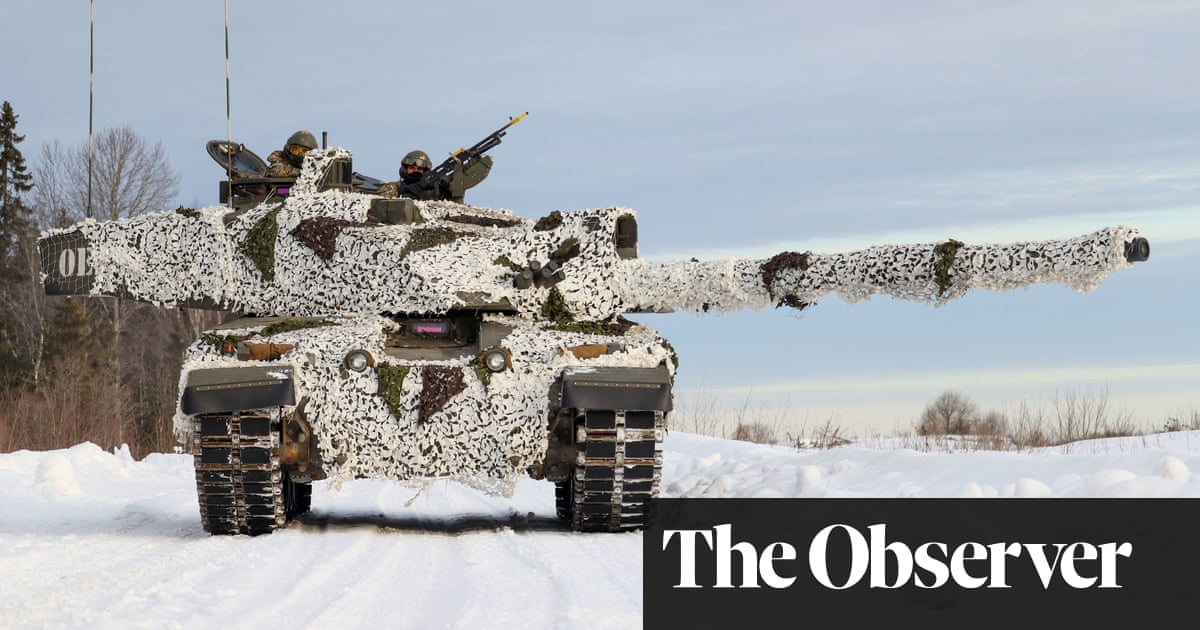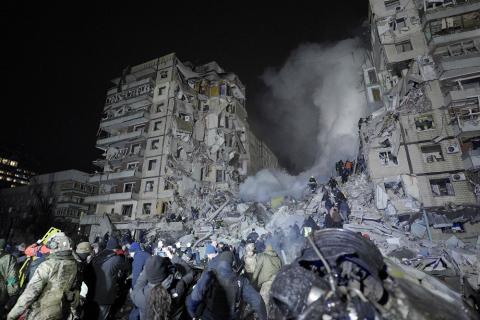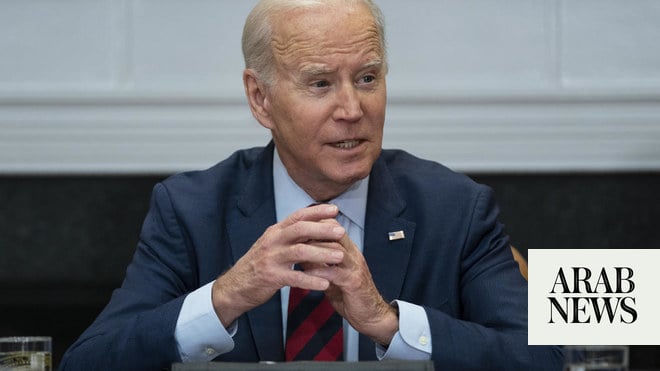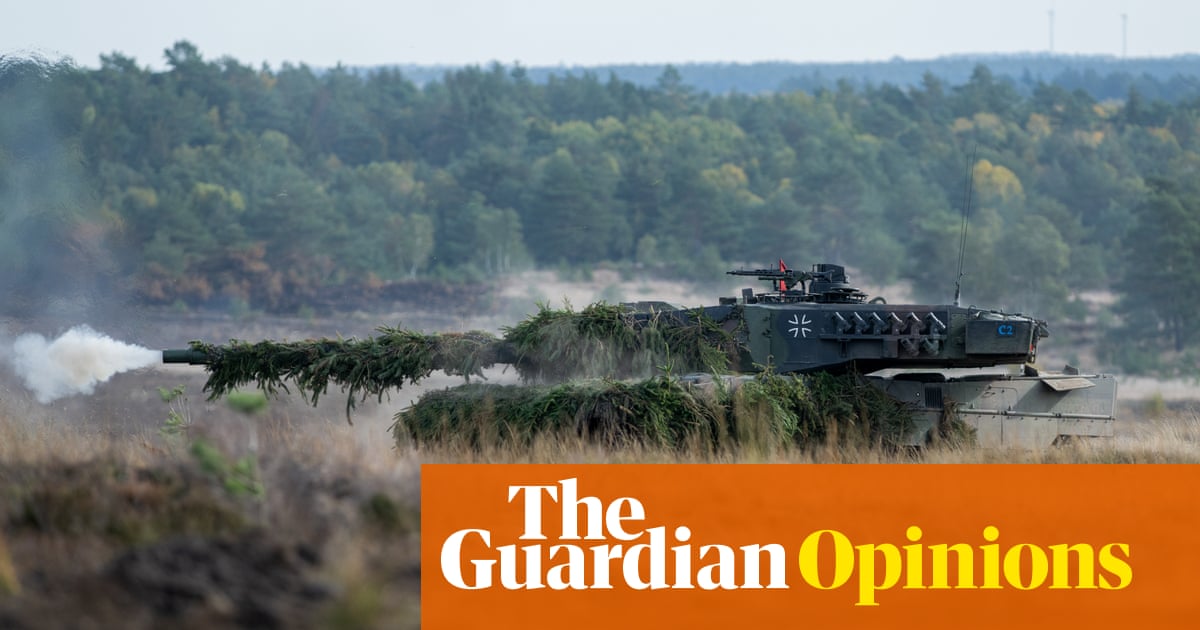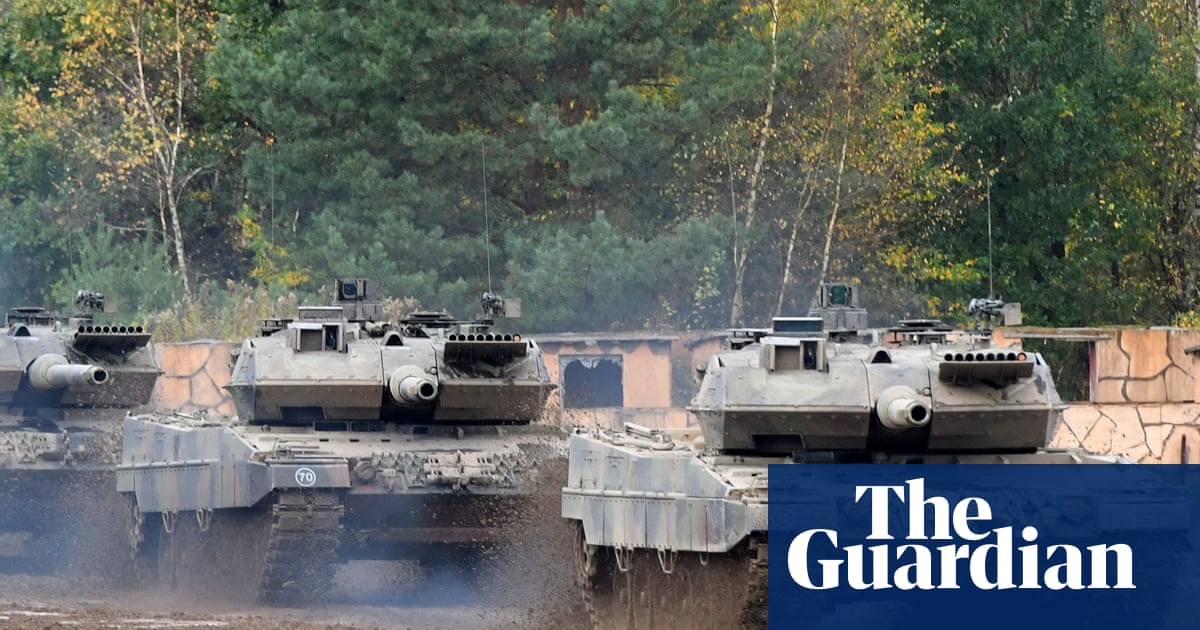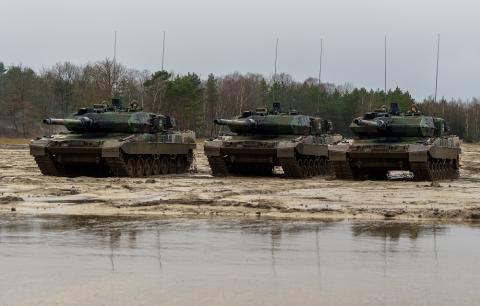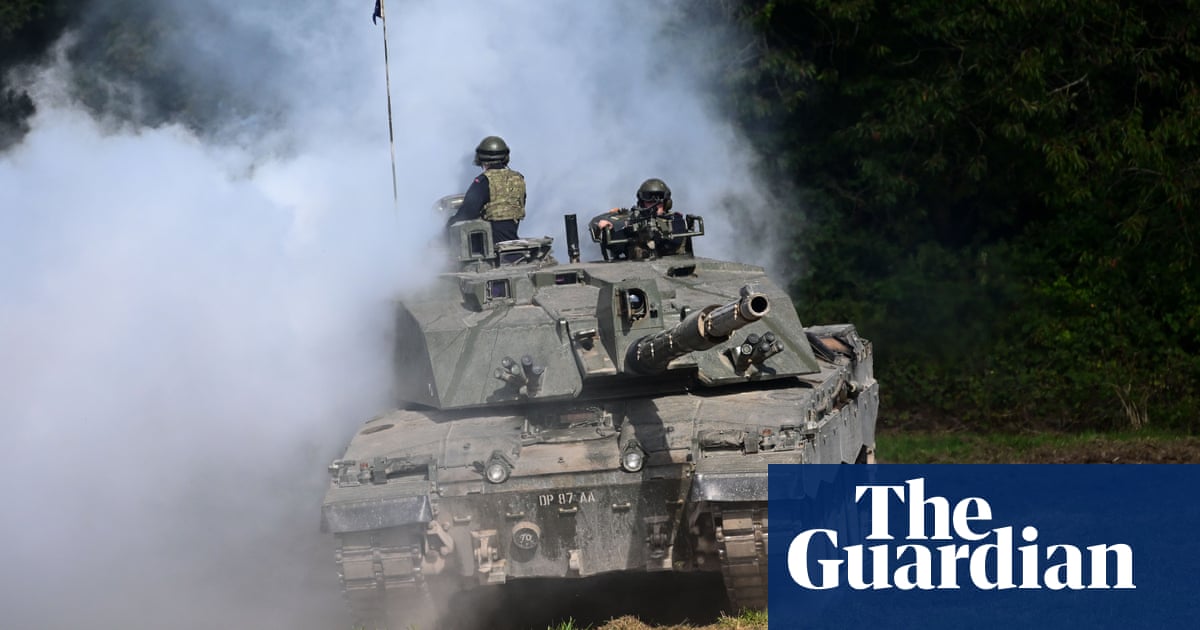
Ukraine is confident Britain will announce it plans to send about 10 Challenger 2 tanks to Kyiv shortly, a move it hopes will help Germany finally allow its Leopard 2s to be re-exported to the embattled country.
A formal announcement is anticipated on Monday but Ukrainian sources indicated they understood that Britain had already decided in favour, as pressure mounts on Berlin ahead of a meeting of western defence ministers next Friday.
Earlier this week, it emerged that Britain was considering supplying Ukraine with the tanks, following months of requests from Kyiv – with a final decision in the hands of the prime minister, Rishi Sunak.
A handful of Challenger 2s, taken from the UK’s existing fleet of 227, would not in itself make much difference on the battlefield, but it would be the first time any western country has agreed to send its own heavy armour to Ukraine.
It is hoped in Ukraine and elsewhere this will pave the way for Germany to follow. There are more than 2,000 Leopard 2s in Europe, held by armies in 13 countries, but Berlin’s consent is required before any of the German-made kit can be re-exported to Ukraine.
German sources said Leopard 2 decision was fraught in governmental circles because of the legacy of the second world war, but what would help the chancellor, Olaf Scholz, is “other allied countries making similar decisions” to supply tanks.
Poland’s president, Andrzej Duda, said on Wednesday during a visit to the western Ukrainian city of Lviv that a company of Leopard tanks “will be handed over as part of coalition-building”. But he added that he wanted such a move to be part of a wider set of announcements, adding “We want it to be an international coalition.”
Another western official said there would be a series of coordinated announcements next week. They suggested the moves – agreed with the UK, US and European allies – would boost the “narrative” that Ukraine would liberate further territory in 2023.
The delivery of western tanks and other advanced weapon systems would show the Kremlin’s assumptions about the war’s likely progress were wrong. Moscow had calculated the anti-Kremlin coalition would wobble, something that has not happened, they added.
The official said they were optimistic Ukraine would eventually win, although that depended on “Ukrainian bravery” and “a continued flow of western arms,” they stressed. Moscow, meanwhile, had not yet run down its stocks and had 9,000 old T-62 tanks in reserve. Munitions factories were working “double shifts” and had stepped up production of artillery shells.
Over the past 11 months since the Russian invasion, the west has pursued a relatively cautious approach to weapons supply, reluctant to give Ukraine more powerful arms, such as tanks, for fear it could be interpreted by Moscow as escalatory. But as Kyiv has shown it can resist the Russian onslaught, the west has been increasingly willing to upgrade its weapons supply to help Ukraine win the war.
On Thursday, Germany’s vice-chancellor said the country should at least allow countries such as Poland to re-export some of their stock.
Robert Habeck, also the economy minister, responsible in part for arms controls, said: “Germany should not stand in the way when other countries make decisions to support Ukraine, regardless of what decision Germany makes.”
Ukraine has said it wants 300 western tanks as part of a wider resupply effort to help it drive out the invaders, because heavy armour is considered the only way possible to overwhelm the increasingly fortified Russian frontlines in the south and east of the country.
Volodymyr Zelenskiy, Ukraine’s president, said on Friday in an address to Lithuania’s parliament that his country needed “urgent decisions by our entire anti-war coalition”, including on the supply of tanks.
He said that included “new defensive decisions” that “will give Ukrainian warriors the opportunity to drive the Russian army out of our land. And this concerns, first of all, modern tanks and effective artillery.”
Clarity is expected in the run-up to the next meeting of about 50 defence ministers at the Ukraine international contact group at Ramstein airforce base in Germany on 20 January.
Last week, the US and Germany jointly announced each country would send infantry fighting vehicles to Ukraine, the first time either had agreed to do so, following a phone call between Scholz and the US president, Joe Biden.
The US promised to send 50 Bradley vehicles and Germany 40 Marders, heavy vehicles one notch below a tank in terms of their firepower and armour, a significant step on the road to meeting Ukraine’s request for 600-700.
That followed an announcement by France that it would supply lightly armoured AMX-10 RCs. On Friday, the country’s armed forces minister, Sébastien Lecornu, said the vehicles would be delivered to Ukraine “within two months”.
Labour said it would support any decision to donate Challenger 2 tanks and said such a move would help reassure Ukraine. But John Healey, the shadow defence secretary, said: “Ministers must move beyond ad hoc announcements and set out a plan for military, economic and diplomatic support through 2023 and beyond.”
Britain’s Ministry of Defence declined to comment on Friday. Earlier this week, when it emerged a tank donation was under consideration, it said: “The government has committed to match or exceed last year’s funding for military aid to Ukraine in 2023, and we will continue to build on recent donations with training and further gifting of equipment.”




